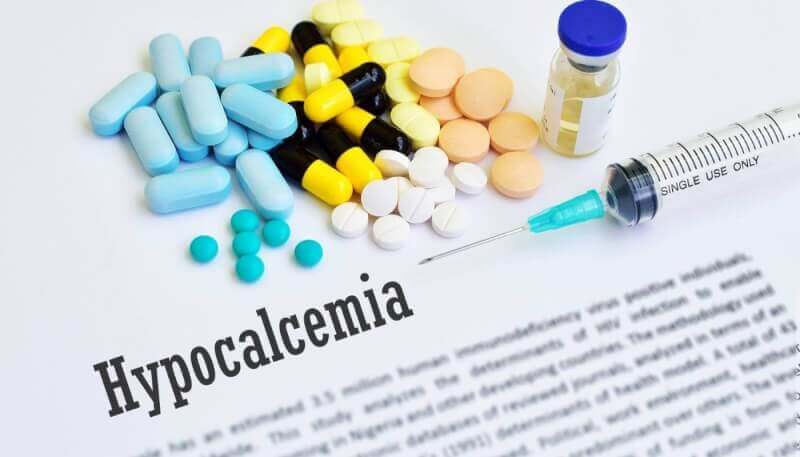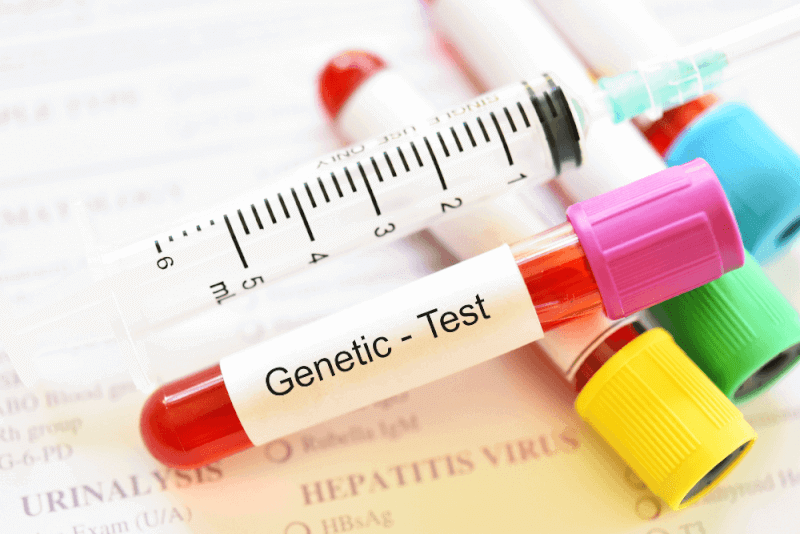What is Hypocalcemia?
Hypocalcemia, commonly known as calcium deficiency, is a condition where the serum calcium level in the blood drops below 4.2 mg/dl. This deficiency occurs when the body either loses calcium or fails to take in enough calcium, leading to a significant health issue, as calcium is vital for the body. Calcium is involved in the structure of bones and teeth, the proper functioning of the heart and other muscles, and the regular growth of height, among many other functions.
Symptoms of Hypocalcemia
Symptoms of hypocalcemia are usually related to calcium deposition in soft tissues or neuromuscular irritability. Therefore, the most common symptoms of hypocalcemia are seen in the neuromuscular, ectodermal, and ocular systems. Chronic hypocalcemia, when associated with hypophosphatemia, can cause rickets and osteomalacia in children. With its serious symptoms, hypocalcemia is a disease that requires urgent intervention. If left untreated, patients' lives can be endangered due to cardiological issues and laryngeal muscle contractions.
Neuromuscular Symptoms
- Fatigue, anxiety
- Memory impairment
- Depression
- Tingling and numbness in the hands and feet
- Seizures
- Blurred consciousness
- Blurred vision
- Double vision
- Dizziness
- Muscle cramps
- Muscle contractions
- Muscle tremors
- Numbness around the mouth
- Difficulty breathing
- Chvostek's sign, which is the retraction of the corners of the mouth
- Inward bending of the hand at the wrist when taking measurements with a sphygmomanometer
- If severe, seizures often occur
Cardiac Symptoms
- Arrhythmia
- Fainting
- Bruising
- Chest tightness
- Chest pain
- Sleep apnea
- Congestive heart failure
- Low blood pressure
Ocular Symptoms
- Cataracts
- Ion accumulation in the lens of the eye
Ectodermal Symptoms
- Dry skin
- Flaking skin
- Easily broken nails
- Dry and dull hair
- Hair loss
- Impaired teeth and tooth enamel
- Failure of adult teeth to erupt in children
Causes of Hypocalcemia
Hypocalcemia can cause many diseases. Additionally, many diseases can influence the development of hypocalcemia. The most common cause of hypocalcemia is thyroid surgery, but there are many potential causes.
Parathyroid Hormone
- Absence of the parathyroid gland
- Parathyroid hormone insufficiency
- Congenital causes
- DiGeorge syndrome
- X-linked or autosomal hypoparathyroidism
- Polyglandular autoimmune syndrome type 1
- Parathyroid hormone gene mutation
- Post-surgical hypoparathyroidism
- Infiltrative diseases
- Hemochromatosis
- Respiratory alkalosis
- Calcium-sensing receptor mutation
- Target organ resistance
- Hypomagnesemia
- Pseudohypoparathyroidism types 1 and 2
Vitamin D
- Vitamin D deficiency
- Inadequate dietary Vitamin D intake
- Malabsorption (insufficient absorption of Vitamin D)
- Rapid elimination of Vitamin D from the body
- Drug treatments for epilepsy, bipolar disorder, and neuropathic pain
- Target organ resistance
- Vitamin D-resistant rickets type 2
- Phenytoin drug therapy
Other Causes
- Excessive calcium deposition in the skeletal system
- Osteoblastic malignancy
- Chelation
- Phosphate infusion
- Infusion of citrated blood cells
- Fluoride
- Decreased parathyroid hormone response
- Critical illnesses
- Pancreatitis
- Toxic shock syndrome
- HIV
- Medication treatments
- Vitamin D deficiency
- Patients in intensive care
- Neonatal hypocalcemia
- Premature birth
- Asphyxia (suffocation due to lack of oxygen)
- Diabetic mother
- Mothers with hyperparathyroid disorder
How is Hypocalcemia Diagnosed?
Blood tests are used to diagnose hypocalcemia. These tests show high levels of serum phosphate in the patient's blood. Additionally, magnesium levels are checked in blood tests. Renal function is also examined as part of the standard investigations for diagnosis.
Urine tests and imaging methods are also used for diagnosis. Since hypocalcemia cannot be diagnosed by a single specialist, it is usually diagnosed by bone metabolism specialists and endocrinologists in research hospitals. If necessary, multiple specialists may work together to treat the patient.
Hypocalcemia Treatment Methods
The goal of hypocalcemia treatment is to eliminate the biochemical, clinical, and radiologic abnormalities that cause ectopic calcification, nephrolithiasis, hypercalciuria, and hyperphosphatemia. The mainstay of treatment is oral calcium powders and Vitamin D analogs.
In addition, blood tests for patients with severe hypocalcemia are repeated daily, and their values are regularly monitored. Patients with moderate hypocalcemia are monitored by blood tests once a week. Serum parathyroid hormone and 24-hour urinary calcium excretion are also monitored from the start of treatment. This monitoring lasts between 2 and 4 weeks. Patients continue to be closely monitored after the end of treatment. Hypocalcemia patients should contact their treating specialist for blood value checks in the 1st and 3rd months. If the patient has acute hypocalcemia, they should have regular blood and urine tests every 6 months after treatment.
In addition to these treatments, underlying diseases causing hypocalcemia should be identified and treated. Otherwise, hypocalcemia will recur. Another important consideration in the treatment of hypocalcemia is not to increase blood calcium levels above normal values.
Calcium Gluconate Treatment
This treatment is used in cases where calcium levels in the patient's blood suddenly drop. These patients may experience severe convulsions, prolonged QT intervals on ECG, loss of consciousness, and heart rhythm disturbances. Care should be taken when administering calcium gluconate, and it should be given slowly.
If patients do not respond to calcium gluconate treatment, magnesium may also be administered.
Calcium Salts
If patients have long-term hypocalcemia and the calcium level in their blood serum is more than 7.5 mg/dl, calcium salt therapy is administered. This treatment involves lactate, calcium carbonate, and gluconate at a rate of 2-3 grams per day. Vitamin D supplements are also given to support this oral treatment. This treatment is used when patients have low blood calcium levels but do not exhibit serious symptoms.
Nutrition for Hypocalcemia Patients
Unfortunately, nutrition alone is not sufficient to treat hypocalcemia. The treatment of hypocalcemia, a very serious disease, must be conducted under a doctor's supervision. However, in later stages, patients should follow a calcium-rich diet under the guidance of specialized dietitians. Excess calcium in the body is also undesirable.
Milk and Dairy Products
For a calcium-rich diet, milk and dairy products should be consumed daily. Products such as cheese and yogurt are recommended due to their higher milk density and calcium content.
Tea, Coffee, and Salt
Excessive caffeine and theine intake reduce calcium absorption in the body. Consuming too much salt accelerates calcium excretion from the kidneys. Therefore, be cautious when consuming this trio.
Green Vegetables
Green leafy vegetables are known to be rich in calcium. However, because they are fibrous, they can also reduce calcium absorption in the intestines. Therefore, milk and dairy products should be preferred as the primary calcium source.
Dried Legumes
Dried legumes are also a source of calcium. For this reason, it is recommended to consume them twice a week.
Nuts and Dried Fruits
Nuts are particularly rich in calcium. However, since they are also rich in calories, they should be consumed in moderation to avoid weight gain.


















